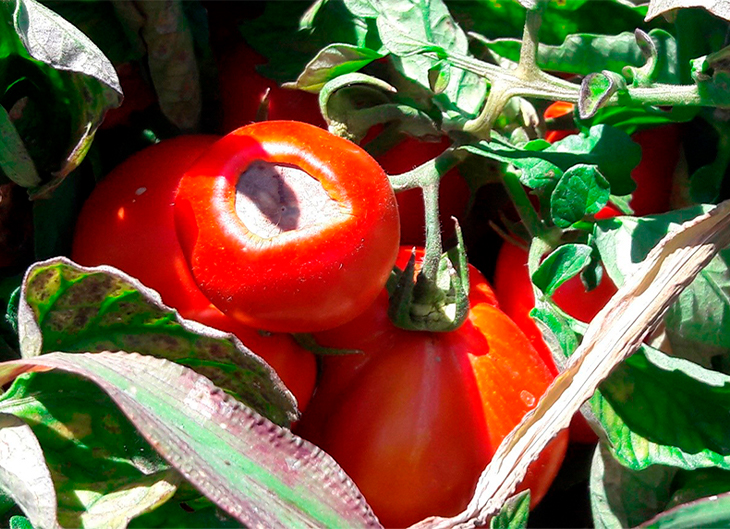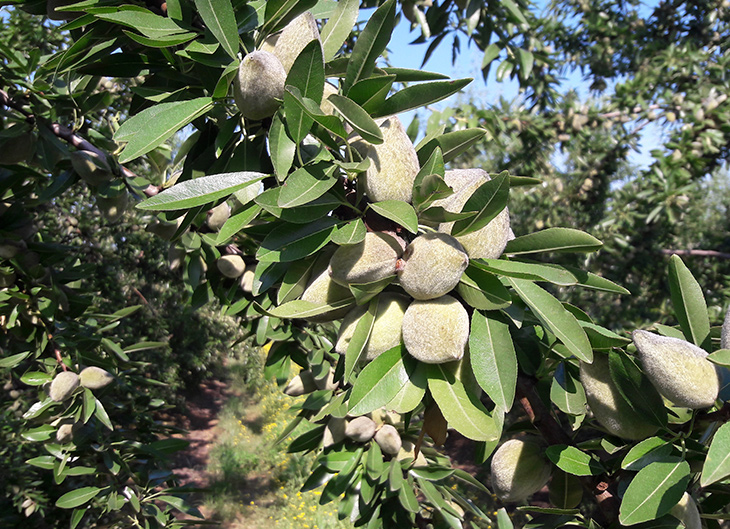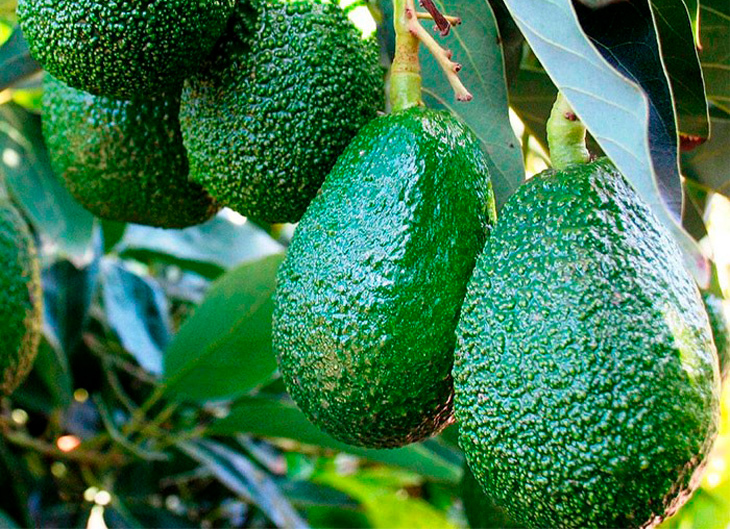![IMG-20191031-WA0010[1]](https://www.agrometodos.com/wp-content/uploads/2019/12/IMG-20191031-WA00101-818x538.jpg)
CORRIZ·AM®: a natural root stimulator capable of increasing the enzymatic activities of Dehydrogenase and β-Glucosidase in the rhizosphere.
One of the indicators used to measure soil health is the magnitude of the activity of different soil enzymes, which are biological catalysts of microbial origin that, when found in their active form in the rhizosphere, facilitate the reactions that release nutrients and produce beneficial bioactive substances causing less wear to the plant.
Enzymes are proteins which help the micro-organisms in the soil to carry out chemical reactions with lower energy expenditure. The energy activation needed to carry out a chemical reaction in a natural way is lower in soil where active enzymes are found. This is due to the fact that enzymes are capable of reducing the increased energy to a reaction (see figure 1).
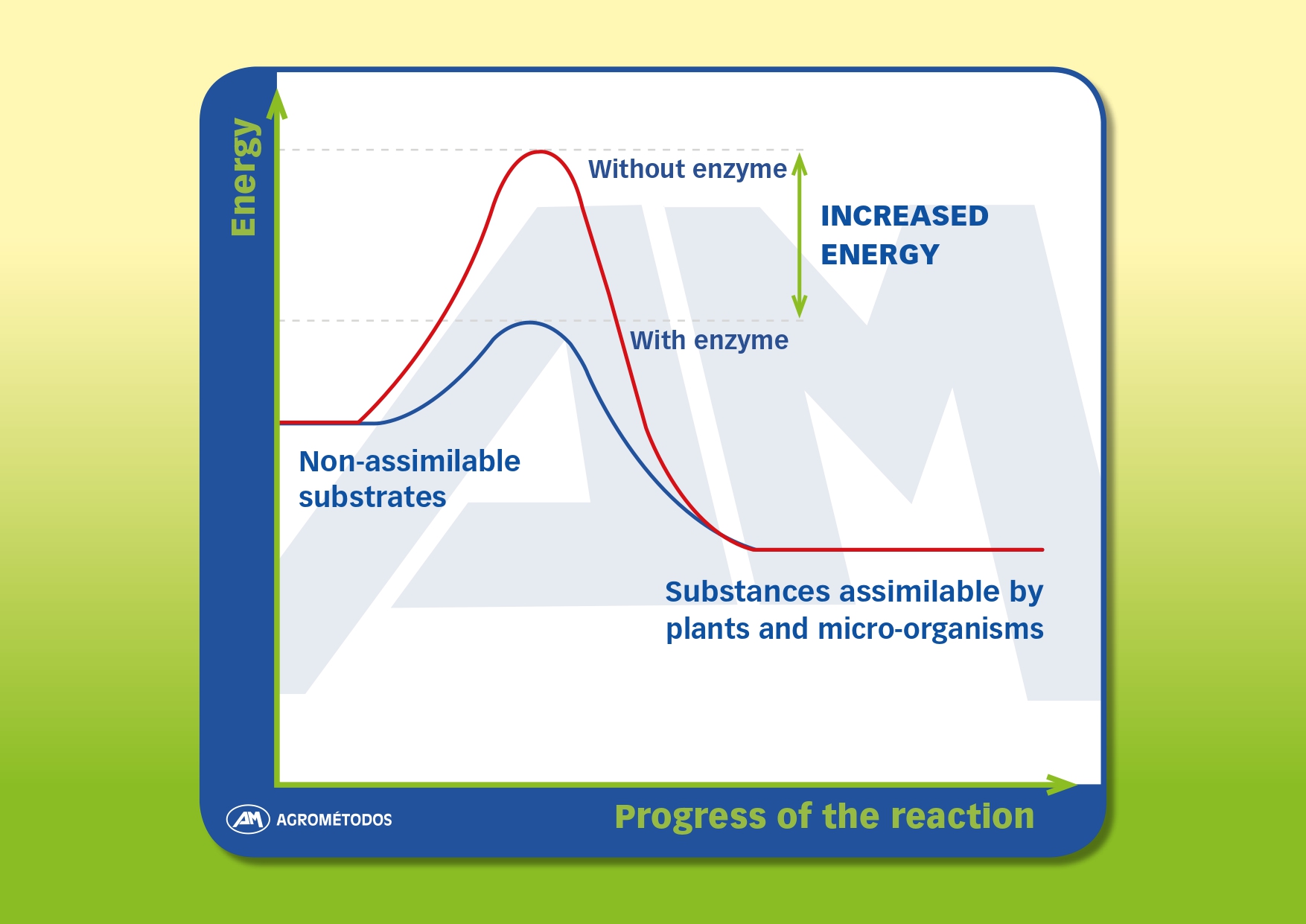
The microbial enzymes in soil can be divided into intracellular enzymes and extracellular enzymes.
Intracellular enzymes work inside living and active micro-organisms. In our studies, we evaluated the enzymatic activity of Dehydrogenase, which is involved in metabolising the energy of micro-organisms, both those that develop in the presence of oxygen (aerobes) and without oxygen (anaerobes).
Extracellular enzymes are produced by micro-organisms and released into the soil in order to decompose large organic compounds. Since micro-organisms cannot absorb these compounds, they secrete these enzymes that help them to break down and to release absorbable substances. However, because the micro-organisms do not absorb all the nutrients that are released from the decomposition of organic matter, some of them remain in the soil solution where they can be absorbed by plants. In our studies, we evaluated the enzymatic activity of β-Glucosidase, which is responsible for the final step in the decomposition of organic matter in the soil, releasing simple carbohydrates (sugars) which are used by micro-organisms and plants as sources of carbon and/or energy for their activity.
The following studies show that applying AGROMETODOS, CORRIZ·AM® root stimulator via irrigation at a rate of 5 L/Ha increases the enzymatic activity of Dehydrogenase and β-Glucosidase in the rhizosphere of the soil (see figures 2, 3 and 4).
These results show the effectiveness of CORRIZ·AM® on the activity of the enzymes evaluated:
- – Dehydrogenase. In the rhizosphere of the treated crops there was greater activity of the active micro-organisms associated with the roots performing a variety of functions that are important for the plant.
- – β-Glucosidase. The micro-organisms in the rhizosphere of the treated crops have greater potential for nutrient and energy release.
What we can conclude from this is that the enzymatic activity (of Dehydrogenase and β-Glucosidase) is higher in soil treated with our natural root stimulator, CORRIZ·AM®. The plant does not need to use more energy to synthesise and secrete root exudates to the rhizosphere in order to promote the activity of micro-organisms, which means that the plant can use this energy for other vital processes.
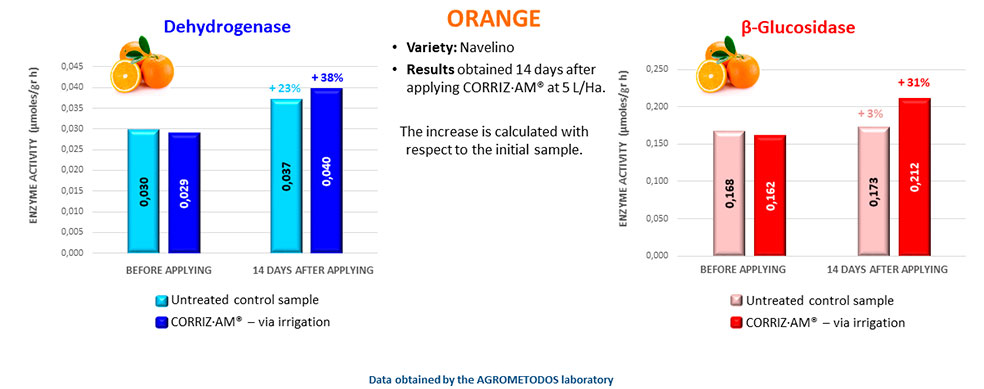
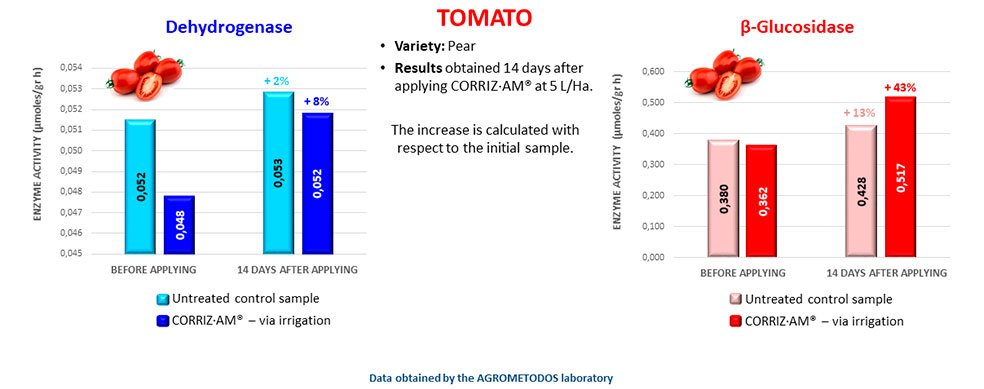
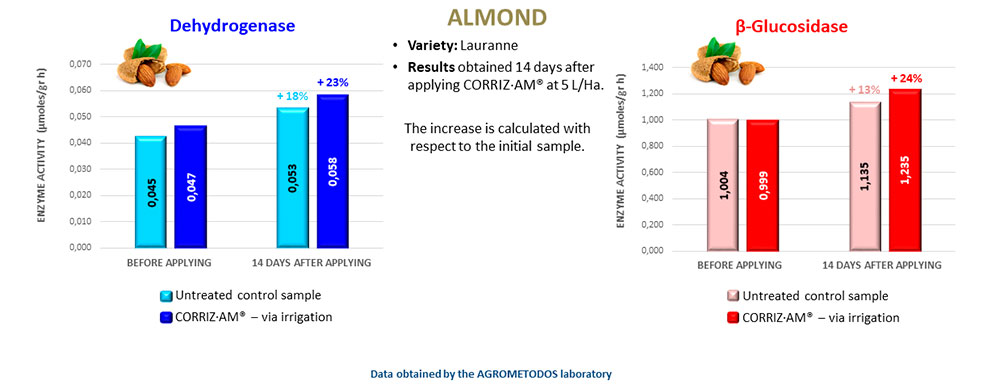
AGROMETODOS R&D&i Department

